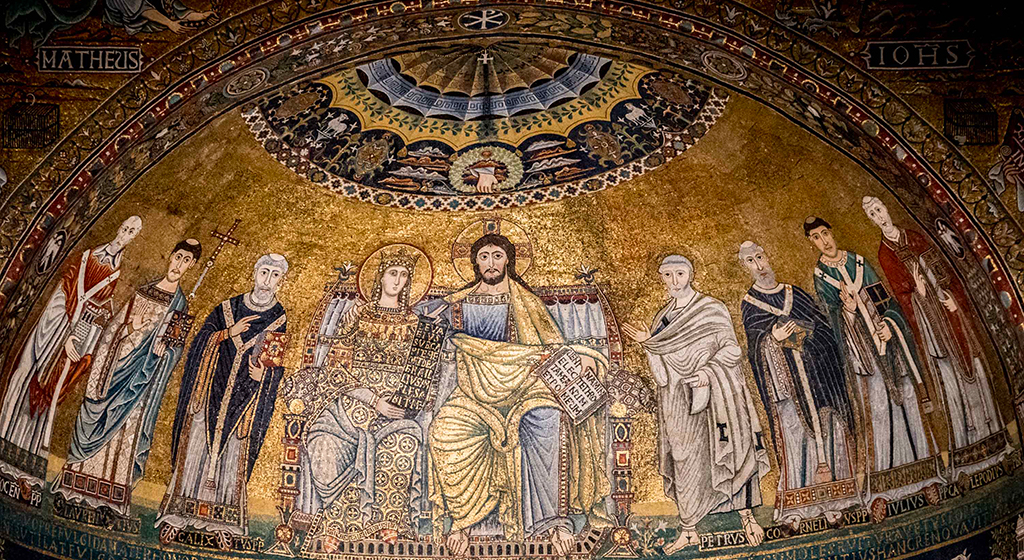Memory of the Church
Feast of Joachim and Anna, ancestors of the Lord. We remember all the elderly who, with love, communicate their faith to the young. Memorial of Mary, a mentally ill woman who died in Rome in 1991. With her we remember all who are mentally ill.
Reading of the Word of God
Alleluia, alleluia, alleluia
I am the good shepherd,
my sheep listen to my voice,
and they become
one flock and one fold.
.
Alleluia, alleluia, alleluia
Matthew 13,10-17
Then the disciples went up to him and asked, 'Why do you talk to them in parables?' In answer, he said, 'Because to you is granted to understand the mysteries of the kingdom of Heaven, but to them it is not granted. Anyone who has will be given more and will have more than enough; but anyone who has not will be deprived even of what he has. The reason I talk to them in parables is that they look without seeing and listen without hearing or understanding. So in their case what was spoken by the prophet Isaiah is being fulfilled: Listen and listen, but never understand! Look and look, but never perceive! This people's heart has grown coarse, their ears dulled, they have shut their eyes tight to avoid using their eyes to see, their ears to hear, their heart to understand, changing their ways and being healed by me. 'But blessed are your eyes because they see, your ears because they hear! In truth I tell you, many prophets and upright people longed to see what you see, and never saw it; to hear what you hear, and never heard it.
Alleluia, alleluia, alleluia
I give you a new commandment,
that you love one another.
Alleluia, alleluia, alleluia
Jesus has just told the parable of the sower. It is an exemplary parable, in the sense that if we do not understand it, it is difficult to understand the others. In effect, with this parable, Jesus shows his new way of preaching the Gospel, which is through parables. In parables concepts intersect with images and events from daily life that are easily understood by everyone who hears them. The Gospel had to reach everywhere. Anyone could listen to it and be helped. Struck by this choice made by Jesus, the disciples ask him directly, "Why do you speak to them in parables?" The proclamation of the Kingdom of God, the heart of the preaching of the Gospel, had to be communicated clearly but without misunderstandings. For the Jews, the Messiah was supposed to establish the Kingdom by political means, even violent ones, as Zealots were preaching. Jesus did not want to be misunderstood. That is why he chose language that could reach the depths of the heart. Whoever was thirsty for love would become even thirstier. Whoever was not thirsty for love would become even drier. This is how we can understand Jesus' words: to those how have more will be given, and from those who have nothing even that will be taken away. The parable draws in the audience and disarms the Pharisees. Indeed, God decided to reveal the "mysteries of the kingdom" to the little ones and the weak. The Kingdom is for them. That is why Jesus says to the disciples, "But blessed are your eyes, for they see, and your ears, for they hear." They, like the weak, were given the grace to touch, hear, and see Jesus with their eyes. He is the "parable" of God among us.
